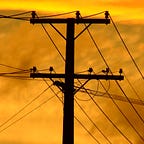Nuclear Subsidies Will Lead to Higher Costs for Connecticut
On Friday, April 29, the Senate passed SB 344- An Act Requiring A Study Of the Adequacy Of Energy Supplies In The State, with an amendment (Senate A). The language of this amendment was unveiled just minutes before being taken up in the Senate, without any public input, formal hearing, or even time for lawmakers to read it.
This bill would unnecessarily line the pockets of a large, Fortune-500 energy company (Dominion) and could lead to significantly higher electricity costs for Connecticut ratepayers. Additionally, there is no urgency to address this because the Millstone Power Station is currently required to stay in business through at least May 31, 2020 under its obligations to the regional grid operator, ISO-NE.
Read more about the issue
CT Mirror: “The measure passed Friday never was subjected to public hearing, nor was it available for review until shortly before debate.”
CT News Junkie: “The measure passed by the Senate on Friday did not follow the typical legislative process and did not have a public hearing or pass through committee. Many Senators didn’t even have a chance to review the legislation Friday before it was called for a vote.”
SB 344 for is bad for Connecticut residents and businesses
The Millstone units are already committed to ISO-NE to operate through May 2020. This is referred to as a “Capacity Supply Obligation” and results in very high penalty payments if they fail to perform according to ISO-NE requirements. Then, starting in 2020, if Millstone was truly in trouble it would have an opportunity to negotiate its future as part of the ISO-NE formal retirement process. Dominion has not even initiated that process.
This bill would have a far-reaching impact on Connecticut’s electricity picture, including consumers, other in-state power providers, renewable energy providers, etc. To pass this legislation without a public hearing, stakeholder input, or before DEEP completes its Comprehensive Energy Strategy, is unnecessary and creates significant risk for the state’s economy.
It will result in higher electricity costs borne by Connecticut consumers. The exact amount of the subsidy will only be known after the RFP is completed. But the RFP is tailor-made to help subsidize a large nuclear power station. It is unlikely any actual renewables or other resources would be able to compete. As wholesale electric generators that have a thorough understand of the complicated dynamics of the New England power market, we estimate that SB 344 could give Dominion a windfall of hundreds of millions of dollars annually.
This legislation stacks the deck in favor of subsidizing nuclear generation and undermines the very market signals needed to attract efficient, economic new resources. Since one-half of Millstone’s annual output, approximately 8 million MWhs, is far larger than all of the other zero-carbon emitting generation in the state, such as hydro, wind, solar, etc. it is unclear how a RFP for this amount of energy could not be set by whatever Millstone bids into the RFP. Essentially, there will be no competition to them and consumers will obligated to pay whatever Millstone demands for its electricity.
Lawmakers deserve to know if Millstone truly needs the subsidy. Connecticut does not know whether the Millstone units are making or losing money, since Dominion has not provided audited financial statements. Therefore, it is premature to pass legislation that would provide these units with a bailout at the expense of consumers. As a zero carbon emitting resource, Millstone already receives approximately $3 per megawatthour(about $50 million/year for Millstone) in higher payments because of the Regional Greenhouse Gas Initiative (RGGI), compared with most other generators.
Want to speak out about this legislation? Call the Connecticut General Assembly Switch board at 860–240–8500 (House Democrats) or 860–240–8700 (House Republicans), and ask to speak to your House Representative.
Find your legislator: www.cga.ct.gov/asp/menu/cgafindleg.asp
Paid for by Calpine, Dynegy, GDF Suez and NRG.
